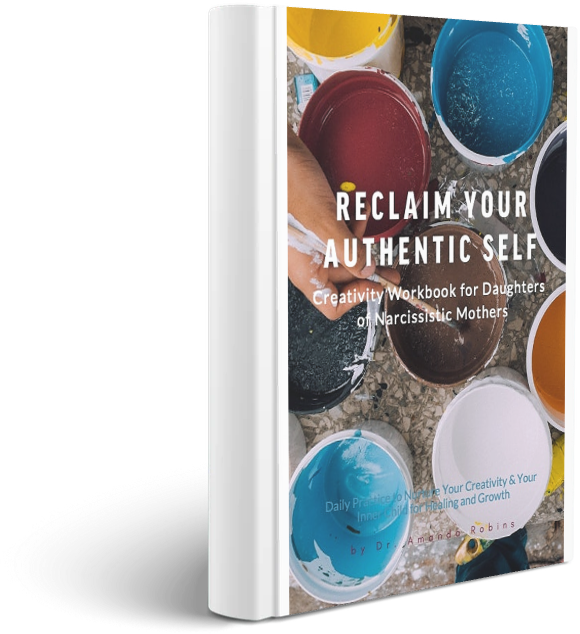YOU’VE FLOWN THE COOP, BUT THE LEGACY IS STILL THERE
May 30 · 9 min read
Narcissistic parents are by definition self-focused. They usually can’t make themselves available to others — emotionally and sometimes physically. For children, the impact is ongoing and painful.
1. Low self-esteem
Your feelings of worthlessness didn’t come from nowhere. Although many children of narcissists don’t consciously experience these difficult feelings, they are still there, running in the background and influencing your everyday life. Your choices, your relationships and your ability to withstand stress are all affected by low self-worth.
Narcissistic parents raise their children to believe that their authentic self is somehow flawed. These parents use shame to try to control their children, forcing them to meet the parent’s needs. Anything that doesn’t coincide with the parent’s point of view is belittled or dismissed. The child is shamed for having opinions, feelings or needs of their own, resulting in an ongoing sense of inadequacy and worthlessness.
2. Chronic shame
Narcissists are shame averse and will usually project their shame onto others. They also use shame as a parenting strategy. Children are extremely sensitive to shaming and will internalise these feelings, carrying them inside themselves well into adulthood.
In her article, Daughters of Narcissistic Mothers, Darlene Lancer writes about the toxic shame narcissistic parents cause their children:
“She rarely, if ever, feels accepted for just being herself. She must choose between sacrificing herself and losing her mother’s love–a pattern of self-denial and accommodation is replayed as codependency in adult relationships.
“Her real self is rejected, first by her mother, and then by herself. The consequence is internalized, toxic shame, based on the belief that her real self is unlovable.”
Most of the time, you won’t be aware of this feeling. It’s like wallpaper — invisible, but always there. The shame you experienced and now carry with you is a habit ingrained through emotionally abusive parenting. Many survivors of narcissistic parenting continue to shame themselves unconsciously when they fail to live up to the impossible standards set by their parents.
3. Sensitivity to criticism
Narcissists experience their children as an extension of themselves. In order to maintain an inflated and positive experience of self, they need their offspring to be perfect. This means that they are continuously uncomfortable with the mistakes and imperfections inherent in being human.
Narcissistic parents rarely accept failure, or mediocrity. Being ordinary is anathema. So they nitpick, criticise, judge and control. As a result of this lack of acceptance, survivors are extremely sensitive to criticism. Feedback at work, criticism from a partner, even innocent comments from a neighbour can send you into a spiral of self-judgement and shame.
4. One sided relationships
Survivors often find themselves in relationships where they are exploited and ignored. Because they have been emotionally abused and rejected by their parents, they haven’t internalised a healthy template for relationships.
They often feel they must give in to others in order to have a relationship, because that is how they were treated as children. They may be attracted to others who trigger their wounds and can sometimes get into relationships with narcissists. Drawn to the tiny crumbs of affection offered by those who may initially appear to be devoted, they are extremely vulnerable to being exploited.
5. Depression and anxiety
Depression and anxiety are the result of the deeper wounds to your sense of self. Survivors of narcissistic parenting can be left with a host of issues in adulthood, including problems with relationships. Due to a lack of agency and feelings of helplessness, children of narcissists can get depressed, feeling like there is nothing they can do to improve their lives.
The helpless rage and frustration survivors experienced as emotionally abused children can result in the sense that there is no justice and any step they take will be stymied. Narcissistic parents are often authoritarian and can dominate their children resulting in a sense that they will be punished for taking action on their own behalf. When things go wrong in life, they may be left paralysed, thinking that they are unable to make an impact.
Narcissistic parents don’t model good ways of managing negative emotions like anxiety. They spend little time helping their children learn to self-soothe. Survivors also experience anxiety due to their perfectionism, with fears around criticism and performance anxiety dominating their social interactions.
For survivors, it’s not enough to treat surface symptoms like anxiety and depression without dealing with the underlying trauma and lack of self.
6. Lack of boundaries
Children of narcissists don’t develop good boundaries growing up, because boundaries are an inconvenience to narcissists. Narcissistic families practice enmeshment and individuals in these families aren’t allowed to develop or have a healthy sense of themselves as separate and autonomous.
Because narcissists generally view their children as an extension of themselves, they discourage any attempts by the child to separate or express their individuality, including having boundaries.
As a result of this “training,” survivors often have trouble saying “no” as well as hearing it and will be attracted to unhealthy relationships where enmeshment is the status quo.
7. Problematic relationship to anger
Narcissistic parents are often angry. They normally won’t express their anger in a healthy way. Sometimes, they will be verbally abusive, belittling and sarcastic. These passive aggressive ways of expressing anger are used to humiliate and control children.
People raised in these environments can be fearful or easily intimidated. They may be unable to express their own anger in healthy ways and are at risk of becoming bullies or alternatively “pushovers” who don’t know how to set limits.
Parents who teach children that it is not OK to be angry, create adults who are afraid of other people’s anger and their own. In these families, children are often silenced and quickly learn not to assert themselves.
8. Patterns of self-destructive behaviour
Children of narcissists often self-soothe through problematic habits. Drinking, smoking, gambling, overeating, drugs and sex addiction can provide some respite from the painful feelings leftover from childhood trauma, but the price is very high. Adult survivors can also be self-destructive and sabotage their careers or healthy relationships, because they feel they don’t deserve success or happiness.
You may find yourself embroiled in unhealthy dynamics at work or home, due to problematic communication styles, sensitivity to criticism or working models and assumptions from childhood which developed as a result of parental criticism and hostility. Being able to set boundaries, say no and ask for what we want, are essential skills for relationships.
Developing self-compassion can help us choose healthier ways of self-soothing and make better choices.
9. Depleted sense of self
Children of narcissists lack a strong sense of self. They often drift along, allowing fate or others to dominate them, as they were dominated by their parents. They often have trouble asking for what they want, because they don’t know themselves well enough to understand their own needs.
Survivors can also have problems asking for what they want in a straightforward way. They can lose themselves in relationships, allowing the other person to set the agenda.
A strong sense of self is crucial to navigating every day life. It stops us from allowing ourselves to be exploited or comparing ourselves to others. It gives us confidence in our abilities. Most importantly, it shapes a strong identity.
10. Competitiveness
Narcissistic parents have unreasonable expectations of their children. They need their children to reflect well on them. They can drive their offspring to achieve, competing and hoping to succeed in a desperate attempt to win their parent’s love.
Siblings in narcissistic families will often be pitted against one another, competing for the tiny crumbs of affection offered by their parents.
Survivors can often be left with the need to base their self-worth on their achievements, trying in vain to win the affection of their narcissistic parents.
These emotionally abused children can become extremely competitive, poisoning their relationships and making it hard for them to have close friendships or collaborative relationships at work. If they feel they cannot win, they may give up, becoming depressed, bitter or angry, envious of other’s success.
Psychotherapy for Adult Children of Narcissists
Adult children of narcissists often have difficulty recognising the pain they experienced as children. Acknowledging the trauma of your childhood can lead to feelings of overwhelming grief or rage. Given you spent most of your childhood denying your own needs, recontacting your authentic self takes considerable work.
Therapy needs to uncover the layers of defence and “forgetting” that have been used to repress your genuine needs and values. Allowing yourself to feel for the first time, you can be hit with intense grief for the childhood you never had, and for your lost self.
Therapeutic work can provide the space for self-recognition and self-compassion.
Complex Trauma
In most cases, those who have been raised in narcissistic families will have a history of complex trauma. Survivors will have trauma symptoms such as hypervigilance and emotional flashbacks. But those who have suffered narcissistic parenting will also have ongoing issues with identity and self-definition.
If you have grown up in a narcissistic family, the emotional abuse you suffered is a part of who you are, for better or worse.
Because it is tied to early development, trauma in childhood gets imprinted in the brain and changes the ability to respond to stress and to have healthy relationships.
Trauma counselling can help gently unpick the trauma-based responses and reactions and allow survivors to recognise the feelings that are underlying their fraught relationship with themselves.
People who have suffered under the regime of a narcissistic parent often experience chronic shame.
Chronic shame is a debilitating condition shared by most people who have been wounded in their early attachment relationships, but for children of narcissists, it is usually much worse.
Because they are shame averse, narcissistic parents will often project their own shame onto their children and will also use shame as a parenting strategy, leaving their children with the intense and toxic emotional fallout of this debilitating emotion.
Narcissistic parents generally don’t work to “repair” the attachment relationship. They often fail to soothe their children, leaving the child to deal with stressful emotional states (including those associated with shame) on their own. Sometimes this can lead to dissociation which makes the young child vulnerable to mental illness later on.
Ongoing shame affects our sense of self and our ability to have healthy relationships, including our relationship with ourselves. Because their sense of self is so wounded, people who have grown up with narcissistic parents often see themselves as defective.
They also experience “gaps” or lacunae in their sense of self.
Their sense of self is fragmented, sometimes due to dissociation, but also due to traumatic memories and emotional flashbacks which can “hijack” survivors and transport them away from the present moment and back into their traumatic childhoods.
How can trauma counselling help survivors of narcissistic parenting?
The aim of therapy for survivors of narcissistic parenting is to integrate the fragmented self.
Because shame is a chronic part of survivors self-experience it can cause them to lose contact with the different parts of themselves. Counselling can help ameliorate some of the effects of shame and help survivors gain awareness of their responses. Therapy can also allow survivors of complex trauma to increase their self-awareness and re-activate the authentic self that has been buried in response to toxic parenting.
The non-judgemental and empathetic relationship you develop with your therapist is part of what will help heal you.
As you develop trust through therapy, you will be able to safely re-experience the repressed and vulnerable parts of yourself that have been forgotten due to childhood trauma. Through empathy and understanding, an experienced trauma therapist will help you develop compassion for these unacknowledged and traumatised parts of you.
As you gain more self-compassion and awareness, you will find that your feelings of shame will diminish. As you get to know yourself better, you will become more grounded, less hypervigilant and more available to yourself and to the important people in your life.
An experienced and empathetic therapist will help you come to terms with the legacy of narcissistic parenting and help you find the best pathway forward.





















